Is now really a good time to bond?
Interest rates remain at near historic lows, and constructions costs are rising. Passing a bond this year means the district can take advantage of low bond rates and commence construction before costs inevitably go up. If we postpone the bond, or if it fails to pass, we can expect construction costs to rise every year by 10 percent.
These factors take into account the time value of money. By acting now, we ensure better educational facilities for our children and we minimize the impact to taxpayers. If we do nothing, we cannot move forward with a responsible plan to rebuild, remodel and revitalize our schools. Instead, we will be forced to rely on ‘bandage’ fixes and a capital project time line that requires our schools to last more than 150 years before being rebuilt. What costs $184 million now will cost more than $240 million in just a few years.
What’s the impact on me?
If the bond passes, a home valued at $259,900 will see a property tax increase of about $15 a month, or roughly $190 annually. FYI – Granite’s property tax rate is below the state average despite being the third largest school district in the state.
Why doesn’t the district just pull money from other things, like administration?
By law, capital projects cannot be funded using money from other designated budget expenditures. The fact is we need a more sustainable cash flow for capital projects to meet the ongoing needs of our schools.
- Granite’s administrative costs are among the lowest in the nation, taking up a mere 0.7% of the budget.
- Utah’s Weighted Pupil Unit (WPU) is the lowest in the nation, which means our Maintenance & Operation spending per classroom is also the lowest in the nation. Using funds from other portions of the budget means stretching resources even further, which would lead to bigger class sizes and less classroom support.
- Even in a hypothetical scenario where all administration costs were transferred to capital outlay, we would still be unable to fund capital needs.
Property values are rising, doesn’t that add to the district’s revenue?
Property tax revenue does not go up with rising property values. In order to maintain a steady cash flow, tax rates decline if property values increase. Taxing entities must adjust tax rates to account for inflation. As such, our capital revenue has not kept pace with rising inflation since the district started a ‘pay-as-you go’ model after retiring debt in 1996.
Current building revenue (capital levy on your property tax notice) has not been increased since the 1999-2000 school year. This revenue can no longer sustain the needs of our school buildings and children.
How much of this money will go to administration?
None. Bond money cannot be used for salaries.
What about the Our Schools Now ballot initiative? Won’t that raise funds for schools?
The Our Schools Now initiative is a ballot measure to increase the state income tax and invest the increase in public education. This initiative stipulates that the additional funding must be spent on programs that directly enhance academic learning, and cannot be used for capital building projects.
When would my school be rebuilt?
Rebuilds and remodels are scheduled on a ‘worst first’ time line. This time line spans four decades to include EVERY school in the district. The first ten years (phase one) will include 13 rebuilds and 17 remodels in addition to revitalization projects for all schools. If the bond fails to pass, however, these capital projects will be significantly delayed.
I still have a question. Who can I talk to?
If you have unanswered questions, you can send an email the Granite School District Communications Office, or call 385-646-4529.
